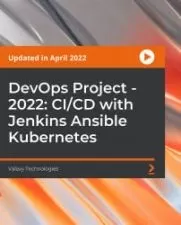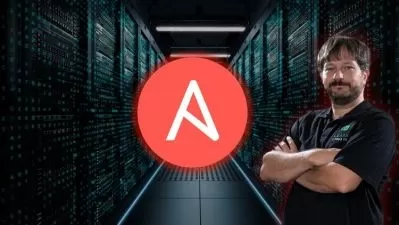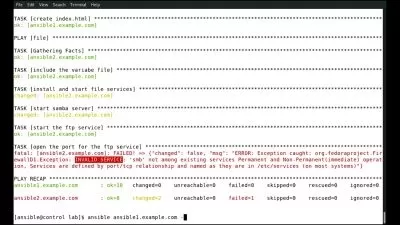Oracle Database Automation using Ansible
Mayank Singh
1:50:18
Description
Create Oracle Database as Code using Ansible Playbook on AWS EC2
What You'll Learn?
- You will be able to Automate the Oracle Database Installation
- You will be able to deploy Oracle databases on aws ec2 using ansible
- You will learn about the Database as Code
- You will see how fast you can Deploy a Database using ansible
- Use Oracle Response File with J2 template
- Shell Scripts with Ansible
Who is this for?
What You Need to Know?
More details
DescriptionANSIBLE – AUTOMATION FOR EVERYONE
ANSIBLE is OPEN SOURCE, SIMPLE, POWERFUL, and AGENTLESS.
The database is one of the important key areas which is missed while implementing DevOps. The professionals lay full importance on code management, continuous integration, etc. but fail to automate the databases. Database handling must be properly done and is very important for data-centric applications. The database plays a major role in such applications, and it needs to be automated and rapidly expand along with DevOps. Ansible addresses this need by allowing you to provision and configure your resources using automation. Ansible doesn’t require setting up complex agents, customized security, or centralized configuration servers. All you need to do is describe your automation jobs.
Moreover, Ansible goes beyond just configuration management; it's a versatile tool that covers various aspects of IT automation. It can automate repetitive tasks, manage complex workflows, and ensure consistent configurations across your infrastructure. This versatility makes Ansible an invaluable asset for not only automating databases but also for handling network devices, cloud provisioning, application deployment, and more.
Ansible is often combined into the DevOps tool category of ‘Configuration Management’ and compared to Puppet, Chef & Salt. The term ‘Configuration Management’ is generally used to describe the management of the state of IT infrastructure, which can include servers, storage, and databases, etc. However, Ansible's simplicity and agentless architecture set it apart, making it an attractive choice for organizations looking to achieve efficient automation without the overhead of managing additional agents or complex setups.
Who this course is for:
- Those who want to learn about ansible
- DevOps Engineer
- Those who want to learn about Database as code
- Those who want to Automate their Oracle Database infrastructure
- Those who want to deploy Oracle databases on aws ec2 using ansible
ANSIBLE – AUTOMATION FOR EVERYONE
ANSIBLE is OPEN SOURCE, SIMPLE, POWERFUL, and AGENTLESS.
The database is one of the important key areas which is missed while implementing DevOps. The professionals lay full importance on code management, continuous integration, etc. but fail to automate the databases. Database handling must be properly done and is very important for data-centric applications. The database plays a major role in such applications, and it needs to be automated and rapidly expand along with DevOps. Ansible addresses this need by allowing you to provision and configure your resources using automation. Ansible doesn’t require setting up complex agents, customized security, or centralized configuration servers. All you need to do is describe your automation jobs.
Moreover, Ansible goes beyond just configuration management; it's a versatile tool that covers various aspects of IT automation. It can automate repetitive tasks, manage complex workflows, and ensure consistent configurations across your infrastructure. This versatility makes Ansible an invaluable asset for not only automating databases but also for handling network devices, cloud provisioning, application deployment, and more.
Ansible is often combined into the DevOps tool category of ‘Configuration Management’ and compared to Puppet, Chef & Salt. The term ‘Configuration Management’ is generally used to describe the management of the state of IT infrastructure, which can include servers, storage, and databases, etc. However, Ansible's simplicity and agentless architecture set it apart, making it an attractive choice for organizations looking to achieve efficient automation without the overhead of managing additional agents or complex setups.
Who this course is for:
- Those who want to learn about ansible
- DevOps Engineer
- Those who want to learn about Database as code
- Those who want to Automate their Oracle Database infrastructure
- Those who want to deploy Oracle databases on aws ec2 using ansible
User Reviews
Rating
Mayank Singh
Instructor's Courses
Udemy
View courses Udemy- language english
- Training sessions 9
- duration 1:50:18
- Release Date 2023/09/10
















